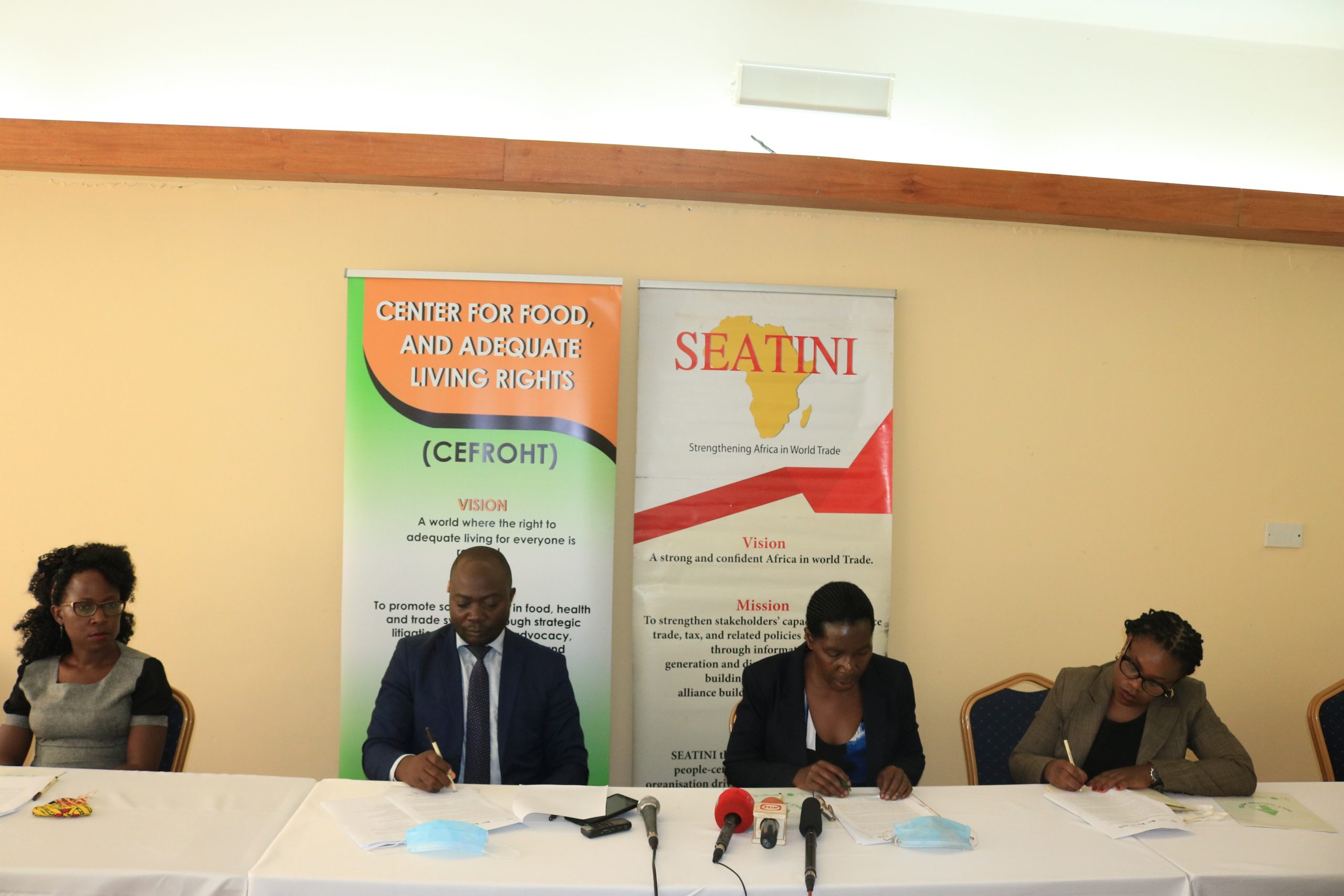TRANSPARENCY: CoST Uganda Commissions 2nd Infrastructure Transparency Index
BY PATRICK JARAMOGI
KAMPALA, Uganda|SHIFTMEDIA|Hundreds of workers in the plantation industry are crying foul after they were laid off by the multi- national companies due to the economic lockdown caused by the COVID-19 pandemic.
The most affected are scores of single mothers, who work in the over 90 flower farms spread across Uganda. To date according to the Southern Africa Trade Information and Negotiation Institute (SEATINI) Uganda, over 500 workers have been rendered jobless and sent packing by the plantation firms.
As the remaining few workers keep praying to survive the continuous job cuts, the civil society organisations have dragged the government of Uganda to court demanding that those erroneously laid off are either returned back to their jobs or compensated for wrongful dismissal.
For this reason, SEATINI-Uganda and the Center For Food, and Adequate Living Rights (CEFROHT) has through a miscellaneous case No58 of 2020 sued the Government of Uganda and the Attorney General.
Other civil organisations fronting the plight of the Ugandan worker’s rights are Women’s Probono Initiative, Uganda Women’s Lawyers (FIDA), Uganda Consortium for Corporate Accountability, and the Advocates for National Resources and Development (ANARDE).
Demanding for Workers Rights
Addressing the media at the Golf Course Hotel in Kampala on Monday, SEATINI-Uganda country director M/s Jane Nalunga said: “We are not against investors, but the fact that investors are given tax holidays, demands that they provide jobs for our people.” Nalunga said they decided to take government to court for what she described as it’s failure to protect the people who work for them. ‘Our concerns are informed by the fact even prior to outbreak of COVID-19 pandemic, and also during the pandemic, a number of investment schemes have continued to violate the rights of some of the marginalised individuals in society,” said Nalunga.
Recently a report by Food Rights Alliance indicated that over 30,000 families had been rendered homeless due to evictions involving commercial investment schemes.
These 30,000 according to the report were subjected to illegal arrests, detention, harassment, and intimidation.
“Investment companies are dispossessing poor communities of their land to grow the same cash crops, like sugarcane, maize, and coffee,” said Nalunga. A recent report released by SEATINI showed that many laborers are subjected to very poor working conditions. “We are concerned that these violations and the resultant effects have continued even during the lockdown period, and could get worse as companies and government pay less attention to human rights protection while seeking to lower their cost of production, and to revive the frail economy,” said Nalunga. She urged government to observe the global theme: “Life before profit”.

FILE/PHOTO
Counsel David Kabanda, the Executive Director Center For Food and Adequate Living Rights (CEFROHT) said many people in these organised schemes are not given enough food to sustain themselves. “Government of Uganda and investors are in violation of international standards when it comes to adequate living,” said Kabanda who is representing the civil rights organisations.
He said that the case that was filed in February 2020 has suffered untold hemorrhage due to continuous delays. “The case was filed in February 2020, it was due for May 29, 2020, but was again pushed to June 29th (today). Today, we were told the judge handling the case was away on sick leave. The case was pushed to September 2020 again,” said Kabanda.
He said they would push for the case to nearer date since the victims are suffering due to the loss of jobs. “We are demanding that government compensates the victims because they were sacked erroneously. We want government to quickly investigate and amend the law to include social rights of people and human rights generally,” said Kabanda. He said that at least 7 workers attached to the Oil Palm Uganda Limited (OPUL) were some of the victims.
M/s Elizabeth Kemigisha from Uganda Women Lawyers (FIDA) described as ‘pathetic’ the working conditions of these plantation workers.
“Most of these vulnerable workers don’t have contracts for their jobs, they are sacked at will. Many have complained of sexual harassment and work overload. Before COVID the farms paid an extra 1,000 for any extra hour after 5 pm, which is very unfair,” said Kemigisha. She said majority were earning between shs50,000 ($13) to 80, 000 ($20) per month yet they have enormous responsibilities.
“We want government to look at the contract of these workers. They lack the necessary protection gears needed while at work. The government must address the job insecurity, low pay, sexual harassment, and violation of their rights should be investigated, “said Kemigisha.

FILE/PHOTO
M/s Faith Lumonya, the Program Assistant SEATINI- Uganda said as civil society, they are not against investors but are concerned about the violation of workers’ rights. “The laws are very weak and need amendment. There is too much maximization of profits coupled with employment of workers minus contracts,” she said.
She urged President Museveni to expeditiously assent to the Minimum Wage Bill so as to enable a fair playing ground for all.
The CSOS issued their demands to the government as below.
CIVIL SOCIETY DEMANDS TO GOVERNMENT:
- Investigate the situation of workers in commercial investment schemes such as factories, flower firms, and plantation investments with a view to secure redress for the affected persons.
- Direct all investments to take up the full responsibility of providing workers, both casual & permanent workers with proper & adequate personal protective equipment on a sector by sector basis & task by task basis, and for protection against exposure to various injuries, and chemicals during their work; and against COVID-19.
- Amend the Investment Code Act, the Employment Act, and the Occupation Health and Safety Act to protect people’s right to dignity and livelihood.
- Urgently finalize the enactment of the Minimum Wage Bill, 2015 to ensure that Ugandan labor is protected from exploitation through payment of very low wages.
- Investigate into the situation of land dispossession of communities by commercial investment schemes such as factories, and plantation investments with a view to secure redress for the affected persons.
- Urgently enact a legal framework specifically designed to address Largescale Land-Based investments given the peculiar challenges that face communities and individuals directly affected by such investments, and the differences in the dynamics involved in their establishment
- Urgently act to implement and enforce the African Union Guidelines for Largescale Land-Based Investments
- Review & terminate all Trade & Investment Treaties (BITs) to balance between protection of the right to dignity & livelihood of Ugandans and the right of citizens, & to balance between the rights & obligations of investors.
- In order to secure policy space to undertake these actions, we call upon government to withdraw its consent from the Investor-State Dispute Settlement (ISDS) provision in Trade and Investment Agreements, and investment contracts that allow foreign investors to challenge government action to regulate their actions.
- Develop and publish a Beneficial ownership register so that we can know who are benefiting from Tax Incentives








